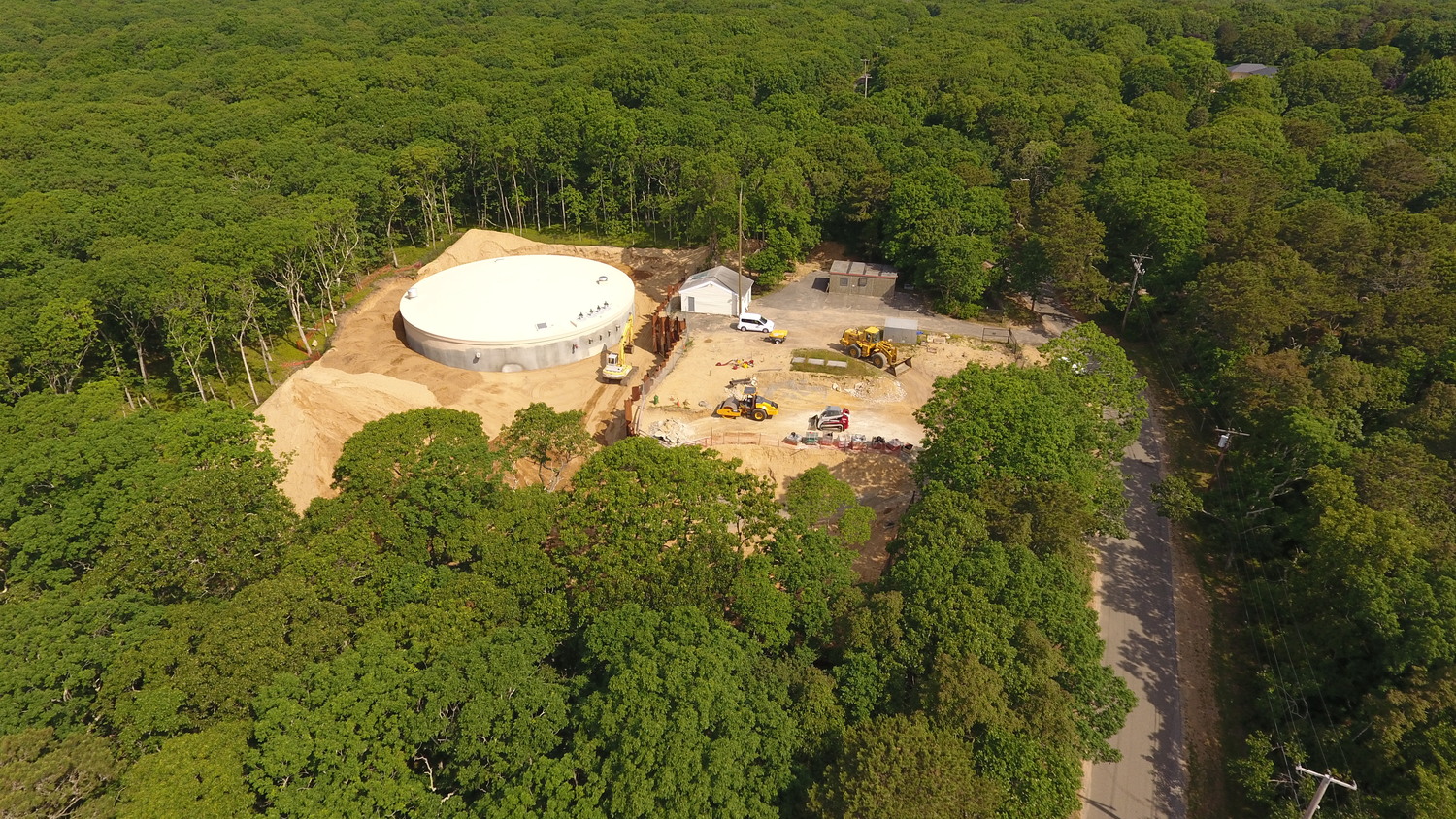
The Suffolk County Water Authority this week asked East Hampton Town officials to make it illegal for a home to use an automatic sprinkler system more than every other day, or to water during daytime hours in the summer, as it continues its campaign to rein in soaring water usage for landscape irrigation and home heating systems.
About two-thirds of SCWA’s entire pump and booster tank infrastructure has been built just to meet the spikes in demand for water seen across the county, but especially on the East End, in the early morning hours of summer, driven almost entirely by automatic sprinkler systems that are set to run every day, SCWA officials said.
The tens of millions of dollars in costs for that infrastructure is paid by all SCWA users, even though the need is created by a relatively small number of wealthy homeowners.
The continually rising demand as more and more homes are converted to landscaped mini-estates and have automated sprinkler systems installed threatens the SCWA pumping system’s ability to deliver sufficient water pressure to fire hydrants in an early morning emergency.
The water authority has adopted an official alternate-day watering policy — homeowners are supposed to water only on odd or even numbered days matching a property’s address — but is powerless to punish violators because it does not have regulatory powers. Towns and villages, however, could issue summonses and levy fines if they write the rules into their respective ordinances.
“What we ask of you is to codify this and enforce it with whatever mechanisms the board would feel is appropriate,” Daniel Dubois, the SCWA’s director of external affairs, said to East Hampton Town Board members on Tuesday. “That’s the best thing we can do to ensure that we have water availability.”
Dubois said that the authority has made the same request of every local municipality in the county.
The water authority has also adopted a policy barring the watering of lawns between 10 a.m. and 4 p.m. in the summertime, because in the midday heat, much of the water from a sprinkler system is lost to evaporation before it can soak into the ground.
The SCWA has also prohibited another huge source of wasted water, barring properties with “open loop” geothermal climate control systems — which use groundwater to heat and cool the homes — from connecting to public water. The open loop systems take in water from the SCWA mains, run it through the geothermal system, and then release it into the ground — using hundreds of gallons a minute for a large estate.
Such systems are at the root of the properties that are the biggest water hogs each summer — some using more than 15 million gallons of water in a year, more than 100 times the average home’s usage.
SCWA Geologist Tyrand Fuller said that while the East End’s aquifer is deep and able to sustain the demands thus far, the massive amounts of water being drawn up do have the potential to pose problems with water intrusion into shallower parts of the aquifer, and increase the likelihood of ponds dropping or streams drying up during periods of drought.
The water authority is considering creating a new third tier of pricing that would boost the cost of water per gallon for “superusers” who pull more than 1 million gallons a year from county wells — primarily for irrigation and geothermal heating systems. The costs, Dubois said, could incentivize such property owners to reduce usage but at the very least would help offset some of the costs of additional infrastructure to meet demands that are otherwise born by all Suffolk County residents.
Town Board members echoed the concerns of the water authority and expressed disgust at the callousness — but offered only vague support for legislative action on the town’s part.
“I would encourage the town to do whatever we can to curtail this use of water for no purpose — especially our drinking water,” Councilwoman Cate Rogers said. “I can’t imagine lowering our drinking water supply to simply water grass that actually has no benefit whatsoever to anything — an invasive, artificial landscape.
“I remember growing up on Long Island and people would move out from the city and were sold this idea of a Kentucky bluegrass lawn that everybody should have because that makes you a good steward of your neighborhood. How wrong that all was.”
“It’s hard to believe that our public water source is being used to for heating homes,” Town Supervisor Peter Van Scoyoc added. “This is such an important topic. There is nothing more important than the quality of our water here — we all rely on it.”